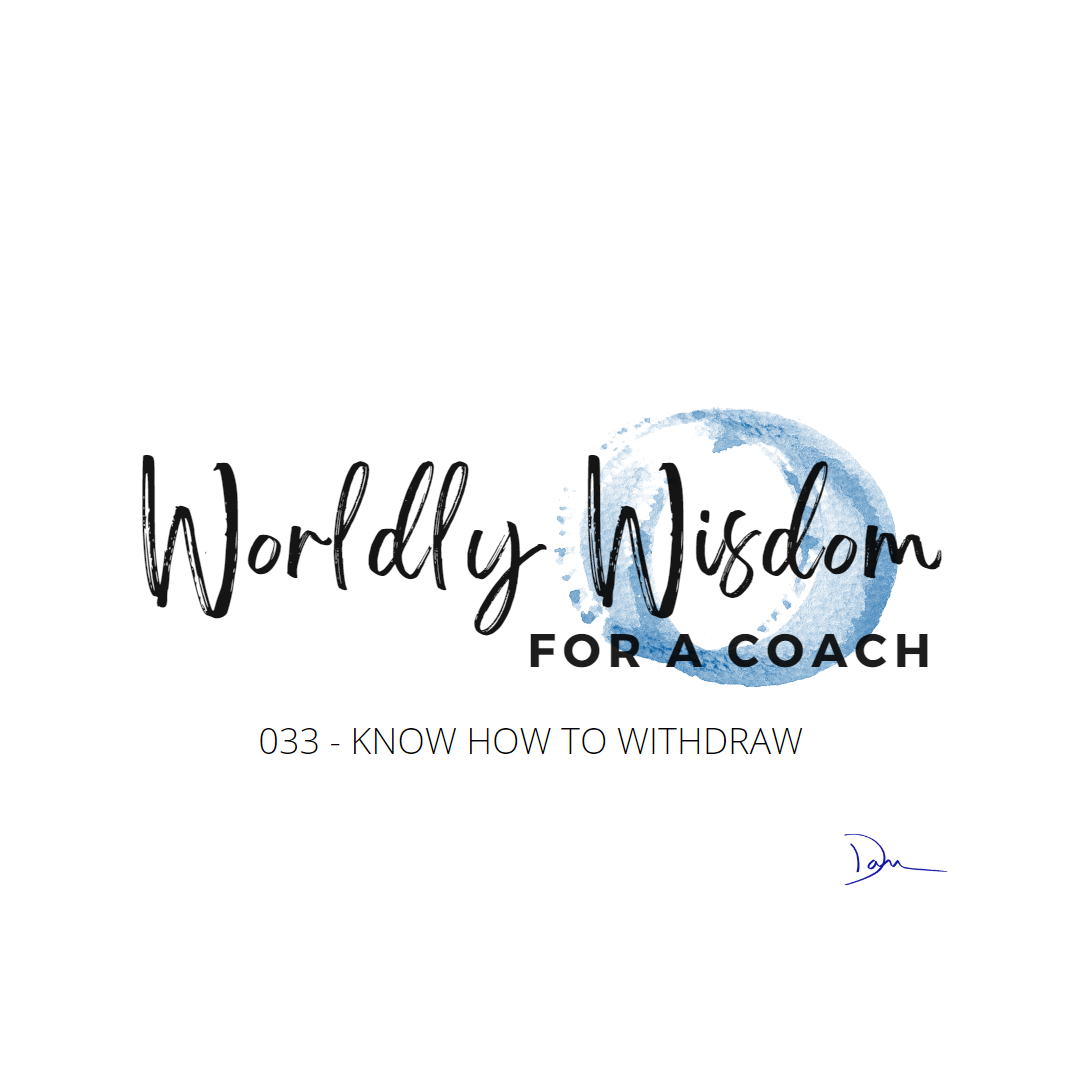#033 – Know how to Withdraw
Know how to Withdraw. If it is a great lesson in life to know how to deny, it is a still greater to know how to deny oneself as regards both affairs and persons. There are extraneous occupations which eat away precious time. To be occupied in what does not concern you is worse than doing nothing. It is not enough for a careful man not to interfere with others, he must see that they do not interfere with him. One is not obliged to belong so much to all as not to belong at all to oneself. So with friends, their help should not be abused or more demanded from them than they themselves will grant. All excess is a failing, but above all in personal intercourse. A wise moderation in this best preserves the goodwill and esteem of all, for by this means that precious boon of courtesy is not gradually worn away. Thus you preserve your genius free to select the elect, and never sin against the unwritten laws of good taste.
I love looking at this passage as a coach-to-coach (peer-to-peer) lesson. Firstly, a coach must know how to withdraw themselves from interfering with their colleagues’ affairs and personal lives. It is essential to respect the boundaries of their peers and let them lead their lives outside of coaching. Secondly, a coach should ensure that their coaching methods or approaches do not interfere with their colleagues’ coaching style. The coach must be respectful of their peers’ methods and avoid any behavior that could be perceived as a threat or interference.
The lesson also emphasizes the importance of wise moderation. This is particularly important for coaches when dealing with their peers. They should not demand too much from their colleagues, whether it is their time, effort, or resources. The coach should strike a balance between seeking their peers’ input and contributions while also respecting their colleagues’ limits and needs.
Another point of this lesson suggests that all excess is a failing, which is particularly true when coaches deal with their peers. A coach should avoid overstepping their boundaries or trying to exert too much influence over their colleagues. Instead, they should aim for a wise moderation of collaboration and communication that allows them to work together effectively while respecting each other’s autonomy.
Finally, and the biggest take home for me is the importance of preserving the goodwill and esteem of all. A coach must maintain a positive relationship with their colleagues, avoid engaging in negative or harmful behaviors, and strive to build a positive and respectful work environment. This will ensure that the coach can collaborate effectively with their peers, earn their respect, and trust, and achieve the best results for their athletes and team.
This blog series is based on the book “The Art of Worldly Wisdom” by Balthasar Gracián. This book was written for advice on how to achieve personal and professional success. This blog series aims to visit the points of wisdom and put them in the spotlight of the coaching and education lens.


